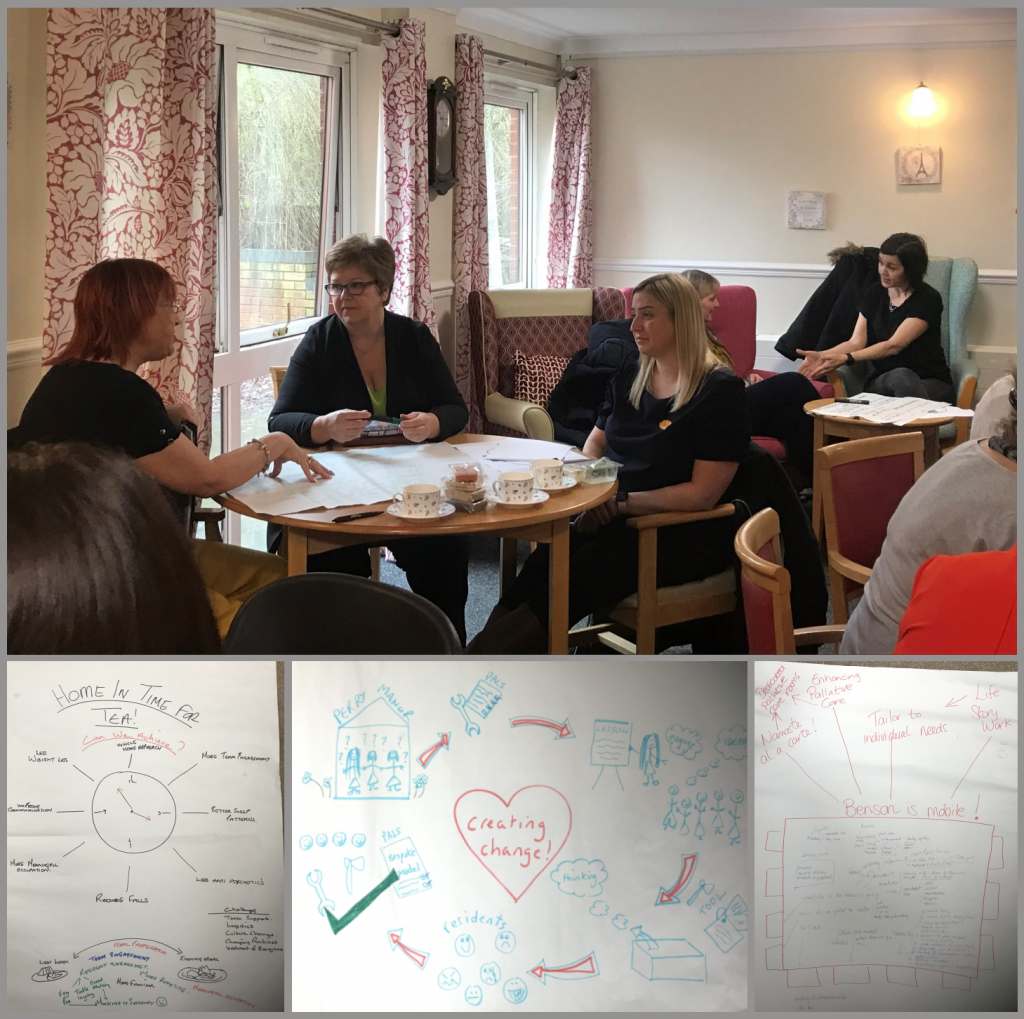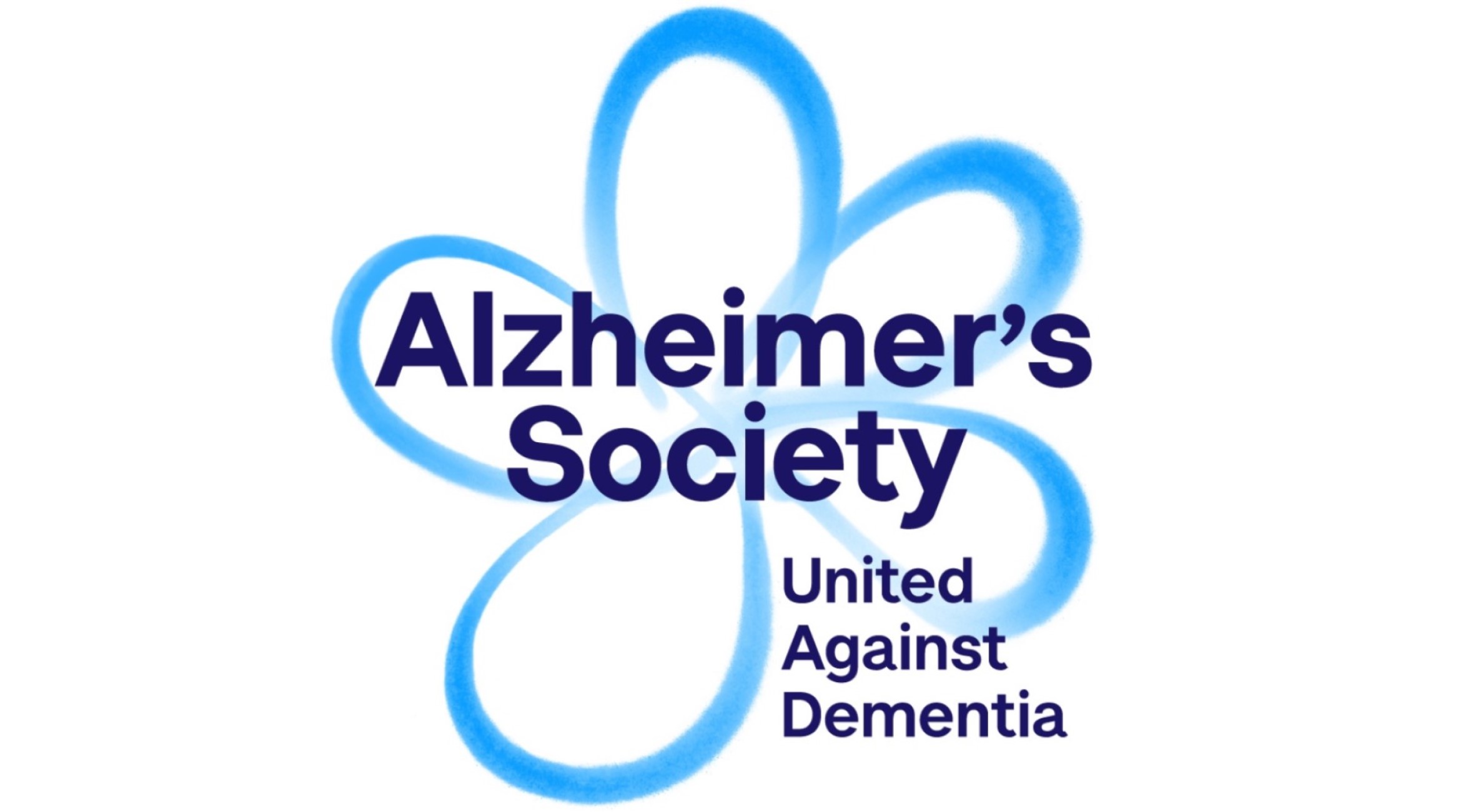In this innovative community programme, co-funded with the Alzheimer’s Society, researchers will work in and with care homes to develop a model for research that is collaborative and effective. Three projects will be identifying new ways of achieving this, sharing information and findings with each other.
The fact that somebody recognised the need for a care collaboration grant is amazing. It recognises that we have to truly work with people, not just pay lip-service to collaboration
Professor Tracey Williamson, University of Worcester
At the Dunhill Medical Trust we very much subscribe to the philosophy of ‘nothing about me, without me’. We wanted to bring the two sides of our funding portfolio together so that we had researchers working in collaboration with the communities we’re trying to support, to bring benefits to all.
To do this, we joined with the Alzheimer’s Society to support their Care Collaborations grant scheme, co-funding three care home research projects that are working to understand what good collaborative research looks like and why it works.
As Dr Isabelle Latham, Project Manager of one such project – the Care Home Action Researcher-in-residence Model (CHARM) at the University of Worcester – explained, “We’ve been doing a lot of these things implicitly in past research that we’ve done in care homes, but this project is about making all those things explicit, and actually saying ‘these are the rules about how you do this kind of research’.”
Collaboration in more ways than one
Each of the three projects will see different research teams working alongside care homes, making them part of the care home community. In the CHARM project for example, unlike a conventional research project where the topic or theme is defined from the start, the research team will work with the care home staff, residents and families to answer questions that are important to them.
We wanted to bring the two sides of our funding portfolio together so that we had researchers working in collaboration with the communities we’re trying to support, to bring benefits for everyone
Sarah Allport, The Dunhill Medical Trust
Isabelle says, “Care homes and care home organisations are filled with hugely able people with great creative ideas. They’re often the people with the best ideas and the best solutions to some of the issues that the sector is facing.”
The three research teams will share ideas and information and work in collaboration throughout the programme.
At the start of the funding, we brought everyone together in a room – all three research teams as well as representatives from the care organisations involved – and we had an amazing day together.
Tracey Williamson, Dementia Carers Count Professor of Family Care in Dementia and the lead researcher on the CHARM project at the University of Worcester, said: “The fact that somebody recognised the need for a care collaboration grant is amazing. We have to truly work with people, not just pay lip-service to collaboration – these are the first funders I’ve come across that recognise that this is what’s been missing. Furthermore, DMT supported our request to have our Research Associate Faith Frost dedicated to family and resident engagement in the project.”
Unfortunately, Covid-19 has paused most of the programme for the time being, but we’re providing ongoing support to help our researchers in getting back to their care homes when they’re ready.

The importance of trust between researcher and funder
This programme represents a very different approach from the norm, as few major research funders would accept a grant application that doesn’t specifically outline the questions to be investigated. And it certainly required us to do things differently when it came to bringing together and supporting the programme.
However, as our researchers say, this is exactly what’s needed: “Funders often want the research plans to be absolutely laid out beforehand, but the world just doesn’t work like that, certainly not for care home research,” said Tracey.
“To have a funder that, with a decent outline, understands that you have got the skills and the experience to adapt as needed along the way is what’s different about this model – and that’s clearly what’s been needed. It’s about trusting the team to be able to do what’s required.”
“The DMT got to know us as a department, and us as individuals. To me a funder is not just someone who gives you money, it should be a relationship because we’ve got the same cause in mind.”
Find out more
The Association for Dementia Studies at the University of Worcester has a number of blog posts on the CHARM project, which can be read here. In particular, this blog piece discusses how the CHARM team have continued to work with their care home partners during the COVID-19 pandemic.

